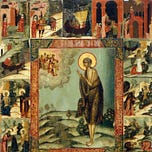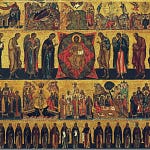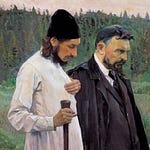Models and images of a spiritual life
Can the question of repentance be addressed in a mechanistic model of pastoral counseling? Is the culture of instant gratification and quick solutions helpful to the understanding of repentance? Can pastors work with the tools and terminology offered by the modern world and frame the Orthodox teaching of the spiritual life in those terms?
Methinks, repentance can never be addressed within a short-term model. One should not even attempt to do this. Nowadays more than ever, there is a need to teach, and preach, and talk, and counsel about the fact that repentance is a long process - often, a life-long process - and that short counseling sessions, or conversations with a priest, or advice received during rushed confessions may serve as mile-markers, or guiding points, but certainly not as instant cures.
It is true that modern culture promotes “magic pills” and instant solutions - “one key to confidence,” “three steps to success,” “five weeks to happiness,” or “twelve rules for life.” Undoubtedly, these strategies work - especially, for the financial benefit of their authors. But for as much respect as I have for the twelve rules for life, and for the tens of millions of people who seem to have been inspired by these rules, few did anything except clean their rooms, and even fewer kept them clean. (Although, it must be said that more tidy rooms in the world is perhaps a far greater result than most other self-help strategies have ever produced.)
Listen to this episode with a 7-day free trial
Subscribe to Phroneo to listen to this post and get 7 days of free access to the full post archives.












